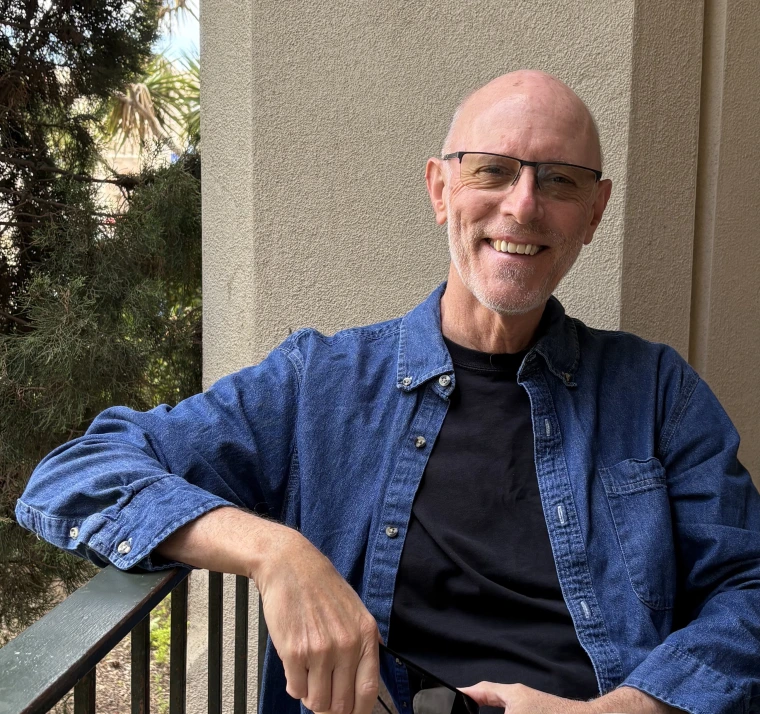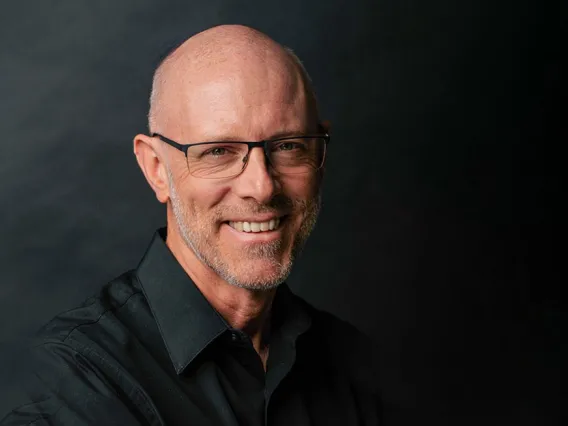R. Brooks Jeffery
Programs
-
Heritage Conservation
-
School of Architecture
-
School of Landscape Architecture and Planning

Documents
Areas of Expertise
-
Heritage conservation
-
History of built environments in Tucson and Southwest
-
Traditional earthen materials and construction systems
-
Vernacular architecture and cultural landscapes
Biography
R. Brooks Jeffery is Professor Emeritus of Architecture in the College of Architecture, Planning, and Landscape Architecture (CAPLA) with an emphasis on Heritage Conservation. Since 1988, his teaching, research, and outreach projects have advanced heritage conservation as part of a comprehensive ethic of environmental, cultural, and economic sustainability throughout the world, including the Middle East, Latin America, and the American Southwest. At CAPLA, he has also held the positions of Associate Dean, Chair of the Heritage Conservation Graduate Program, and Director of the Drachman Institute.
Jeffery has authored/co-authored over 50 peer-reviewed articles, books and technical reports, including Cross-Cultural Vernacular Landscapes of Southern Arizona (Vernacular Architecture Forum, 2005, co-edited with Laura Hollengreen), “From Azulejos to Zaguanes: The Islamic Legacy in the Built Environment of Hispano-America” (Journal of the Southwest, Spring/Summer 2003), A Guide to Tucson Architecture (University of Arizona Press, 2002, with Anne M. Nequette), Joesler & Murphey: An Architectural Legacy for Tucson (City of Tucson, 1994) and Yemen: A Culture of Builders (American Architectural Foundation, 1989). Jeffery has been a principal investigator on numerous grants and contracts from local, regional and national agencies, totaling over $2 million.
In 2016, Jeffery was appointed Associate Vice President at the University of Arizona’s Office of Research, Innovation & Impact (RII). He was responsible for advancing innovative research in the arts, humanities, and social sciences, as well as select museums, centers and institutes that report to RII. Jeffery served as co-lead of UA 2018 Strategic Plan Pillar 3 – Arizona Advantage: Advancing our Land Grant Mission to Drive Social, Cultural and Economic Impact. He also oversaw RII’s portfolio of research space, core facilities, new construction, – including the $85M Applied Research Building (ARB), and $99M Grand Challenges Research Building (GCRB) – as well as the development of a campus-wide research and innovation infrastructure strategic plan.
In addition to his university administration, teaching and research responsibilities, Jeffery collaborated with governmental and civic agencies on preservation issues locally, regionally, and nationally while serving as a board member on the University of Arizona Historic Preservation Advisory Committee, Arizona Historic Sites Review Committee, and the National Council for Preservation Education. He has received numerous awards including the “Director’s Partnership Award” (2015) and the “Excellence in Resource Stewardship Award” (2006), both from the U.S. National Park Service. At the state level, he’s been honored with three “Governor’s Heritage Preservation Honor Awards” (2012, 2014, 2022) and Tucson’s highest preservation honor, the “Alene Dunlap Smith and Paul C. Smith Award” (2007) from the Tucson-Pima County Historical Commission for the “high level of dedication and long-term commitment toward historic preservation in our community”. He was also awarded the 2008 Common Ground Award from the Metropolitan Pima Alliance for his involvement in the Wilmot Library Planning Charette advocating for the preservation, rather than the proposed demolition, of a landmark Modern design as part of an overall sustainable development proposal.
Since his retirement from the University of Arizona in 2022, Jeffery thrives as a heritage conservation consultant, dedicated to the sustainable stewardship of our cultural heritage in projects throughout the American Southwest. In this capacity, he also served as start-up executive director of the non-profit Naco Heritage Alliance where he spearheaded strategic planning efforts and launched the rehabilitation of the 17-acre Camp Naco site, Arizona’s cornerstone of Buffalo Soldier history. He currently serves on the Board of Directors of Patronato San Xavier, the non-profit charged with the conservation of the 17th C Mission San Xavier, a living church on the Tohono O’odham Nation and southern Arizona’s most popular tourist destination.
Select Publications (see Curriculum Vitae for complete list of publications):
Sistemas Tradicionales Constructivas: Terrados y Otras Techumbres (UNAM, 2015)
Acequia and Compuerta Preservation Plan, Tumacacori National Historical Park (2014)
Williams Ranch Historic Structure Report, Guadalupe Mountains National Park (2013)
Pine Creek Historic District National Register Amendment, Zion National Park (2012)
Guide to Tucson Historic Neighborhoods (City of Tucson, 2012)
Pratt Cabin Historic Structure Report, Guadalupe Mountains National Park (2012)
Hubbell Trading Post Furnishings Report and Plan (2012)
Rincon Heights Historic District (Tucson AZ) National Register Nomination (2011)
Visitor Center Conceptual Design, Timpanogos Cave National Monument (2010)
Architects of Influence: Nicholas Sakellar (Tucson Home Magazine, Fall 2009)
The TICRAT Model: A Binational Adobe Workshop (Archeology Southwest, 2009)
Architects of Influence: Annie Graham Rockfellow (Tucson Home Magazine, Winter 2008-2009)
Hermits Rest Historic Structure Report, Grand Canyon National Park (2008)
Architects of Influence: Arthur Brown (Tucson Home Magazine, Fall 2008)
Architects of Influence: Judith Chafee (Tucson Home Magazine, Spring 2008)
Architects of Influence: Roy Place (Tucson Home Magazine, Summer 2008)
First Administration Building Historic Structure Report, Grand Canyon National Park (2008)
Photo Essay: Missions Initiative TICRAT 2008 (SMRC Revista, Spring/Winter 2008)
Odds-On Favorite: Tucson's Odd Fellows Hall (Tucson Lifestyle, May 2007)
Bates Well Historic Structure Report, Organ Pipe Cactus National Monument (2007)
Bryce Canyon Lodge and Old NPS Housing Cultural Landscape Report, Bryce Canyon National Park (2006)
Maintenance Guides for the Treatment of Historic Properties, Petrified Forest National Park (2005)
Utah Parks Company Service Station Historic Structure Report, Bryce Canyon National Park (2005)
Chiricahua National Monument Historic Designed Landscape National Register Nomination (2004)
Winterhaven Historic District National Register Nomination (2003)
Design Heritage: Our Modern Heritage (Tucson Lifestyle Home & Garden, Summer 2002)
Design Heritage: Historic Neighborhoods (Tucson Lifestyle Home & Garden, Spring 2002)
Historic Homes and Neighborhoods (Tucson Lifestyle Home & Garden, 2002)
Point: Reconstruction Doesn't Work! (Archeology Southwest, Spring 2001)
Librarians as Generalists: Redefining Our Role in a New Paradigm (Art Documentation, Fall 1998)
Urban Conservation in the Old City of San'a (University of Florida Press,1997)

